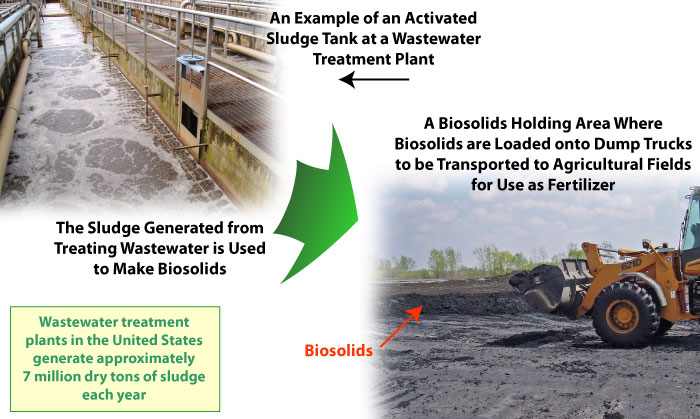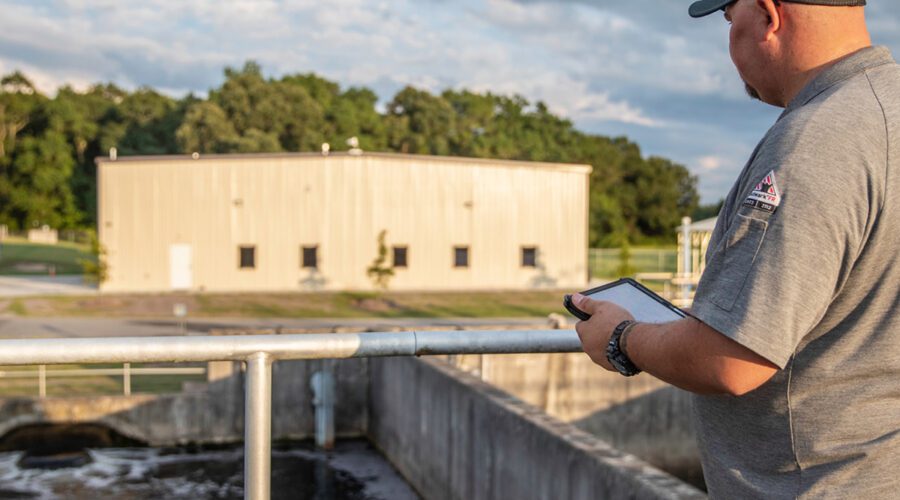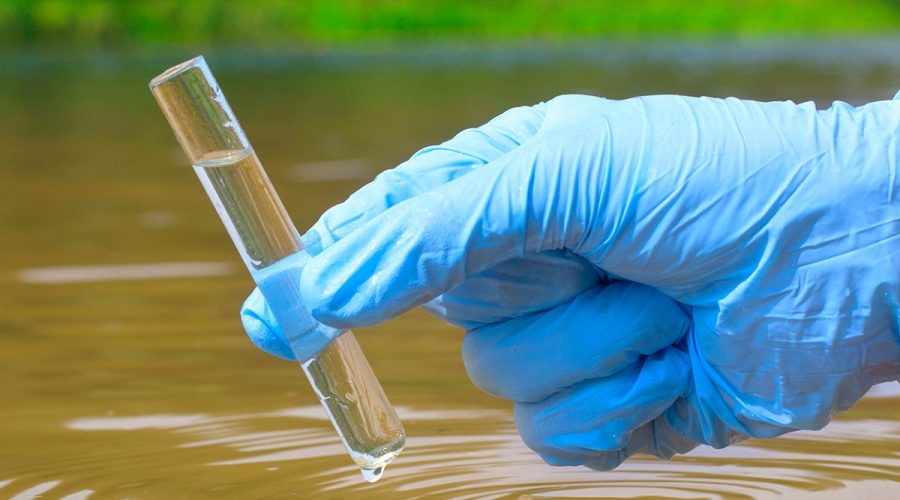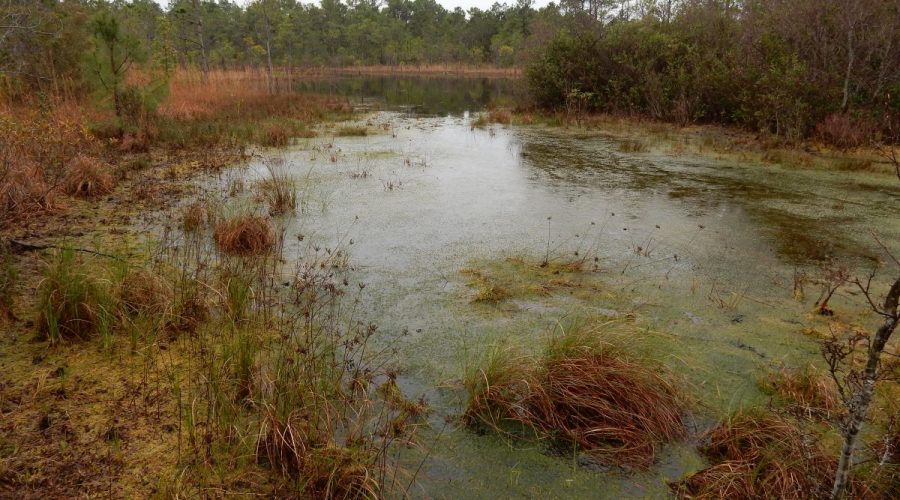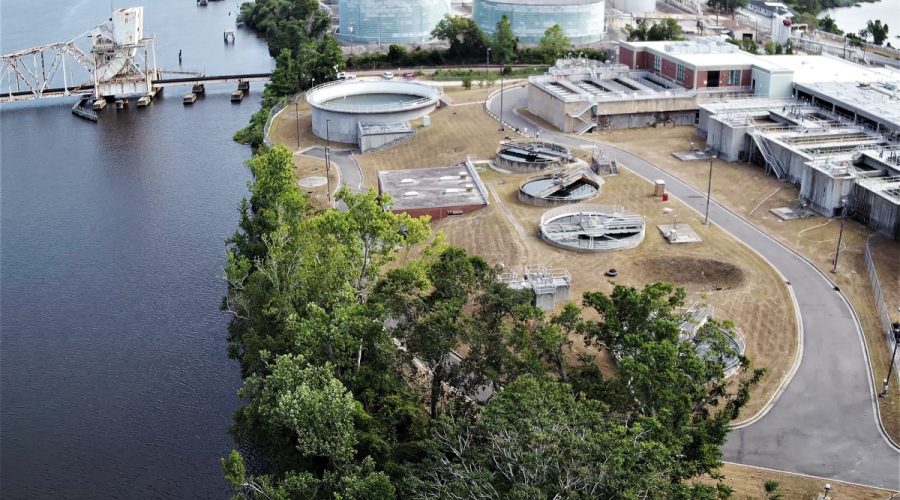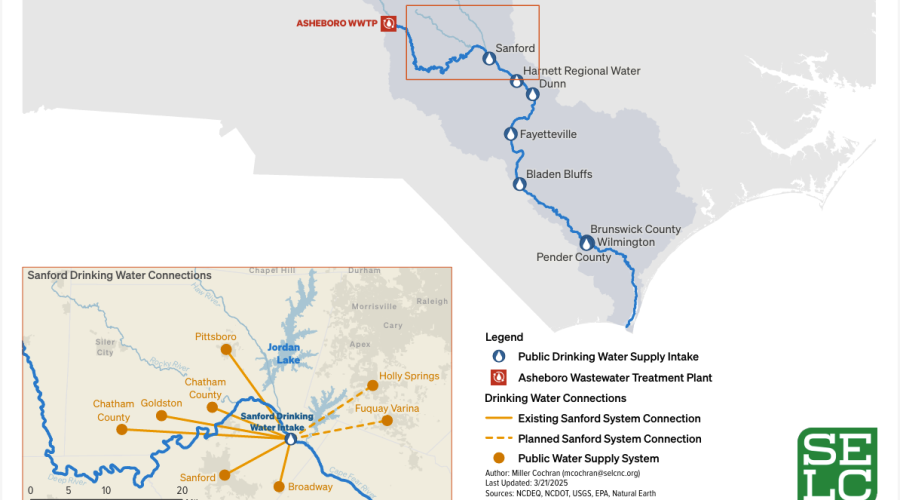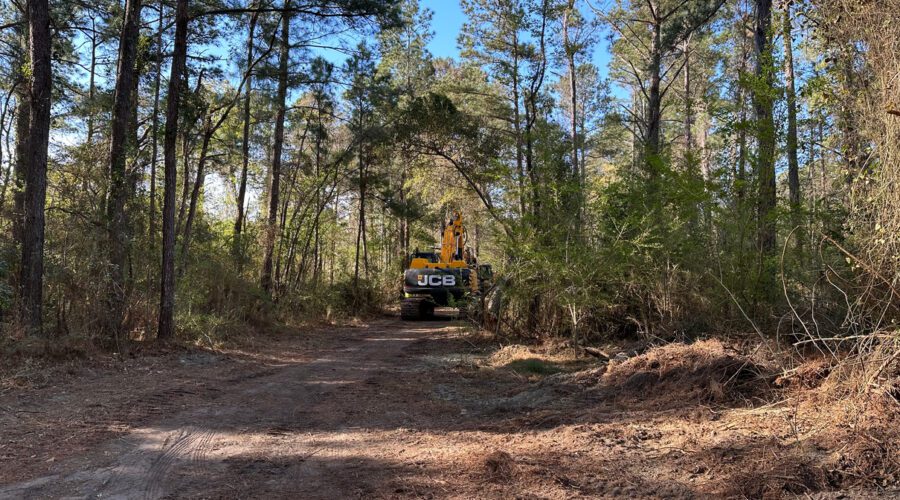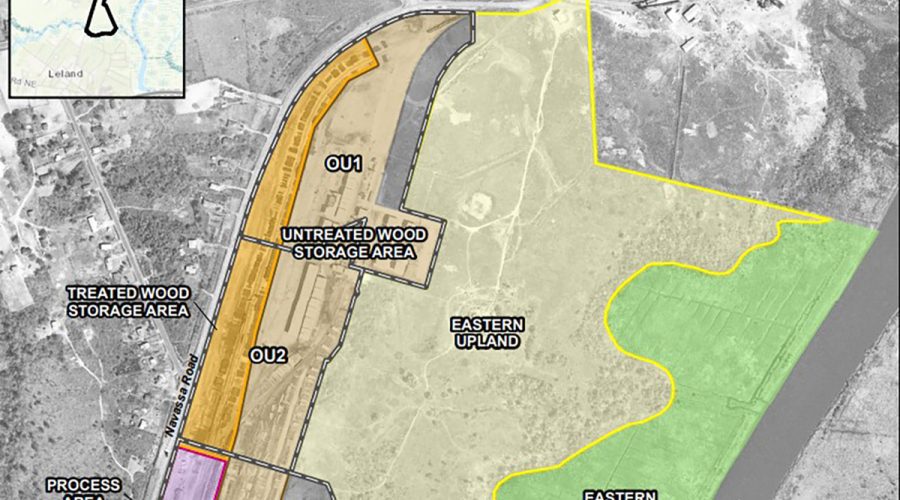Supporters call the changes modernization; critics warn they could weaken safeguards in the Toxic Substances Control Act, the nation’s primary chemical safety law.
EPA
First state study of PFAS in biosolids finds presence statewide
A N.C. Division of Water Resources study evaluating PFAS concentrations in wastewater and biosolids from 37 municipal, industrial and domestic wastewater treatment plants across the state is being called a “first step” to understanding the breadth of PFAS contamination in the state.
Commission OKs advancing wastewater rules to public review
The public will soon be able to lodge their comments about proposed rules mandating that public sewer plants test their treated discharge into rivers, creeks and streams for three types of per- and polyfluoroalkyl substances and a chemical solvent.
New year, new definition: Feds set to limit water protections
The public has until Monday to comment on the Environmental Protection Agency and Army Corps of Engineers’ proposed changes to the “waters of the United States” definition that are expected to limit eligibility for federal water quality safeguards.
Navassa chemical firm guilty of Cape Fear discharges
The chemical processing firm American Distillation Inc. in Brunswick County is guilty of purposely discharging pollutants into the Cape Fear River, and company owner Andrew J. Simmons Jr. pleaded guilty to failing to pay federal taxes.
Public hearing Tuesday on proposed ‘WOTUS’ definition
A hearing is set for next week on the proposed definition rolled out last month for “Waters of the United States,” which outlines the waterbodies eligible for protection under the federal Clean Water Act, that conservationists warn will leave millions of acres of nontidal wetlands vulnerable to pollution, harm fish habitat and worsen flooding.
EPA seeks reporting rollback as new study finds hidden PFAS
The EPA says the change will cut red tape, but new research suggests regulators may already be missing major sources of contamination.
EPA, Army Corps leaders publish revised ‘WOTUS’ definition
Environmental Protection Agency and Army Corps of Engineers officials said Monday that proposed changes to the existing “waters of the United States” definition are to focus on relatively permanent, standing or continuously flowing bodies of water.
Port’s Cape Fear dredge project fails taxpayers, environment
Guest commentary: Deepening the Cape Fear River will only worsen flooding around the downtown Wilmington waterfront and the North Carolina Battleship site and lead to a substantial loss of vital wetlands and floodplains.
Chemours is doubling down on its toxic history: NRDC
Chemours is not a company that can be trusted to expand its operations responsibly, and it’s an example of the national PFAS pollution crisis, writes Drew Ball of the Natural Resources Defense Council.
Opponents urge EPA to uphold objection to Asheboro permit
Those who spoke last week at the Environmental Protection Agency’s hearing on Asheboro’s wastewater permit urged the EPA to uphold its objection to the city’s proposed permit with no effluent discharge limit for 1,4-dioxane into the drinking water supply of hundreds of thousands downstream.
Coastal fishing charter awarded air pollution reduction grant
An Onslow County fishing charter is one of nine recipients to be awarded from more than $1 million in grants for projects that will reduce air pollution from diesel-powered engines.
EPA sets hearing on Asheboro’s proposed discharge permit
The Environmental Protection Agency is holding the public hearing on a proposed permit for the city’s wastewater treatment plant, which dumps high levels of 1,4-dioxane waste and is upstream of municipal drinking water customers in Brunswick, New Hanover and Pender counties.
Work at Navassa Kerr-McGee site to take longer than planned
Crews have found “an extensive amount” of debris, including unanticipated contamination, meaning more cleanup time is needed for a 16-acre unit of the federal Superfund site long home to a wood-treatment operation.
Update on Navassa Superfund site cleanup set for Thursday
A host of topics, including upcoming work to excavate additional contaminated soil and debris discovered last year in an area of the former Kerr-McGee Chemical Corp.
site in Navassa, will be discussed at a community meeting hosted Thursday night.
Hearing on mandated wetland redefinition draws no support
Those who spoke Thursday during a public hearing in Raleigh urged the Environmental Management Commission to work with legislators to rescind the amendment narrowing state protections.


